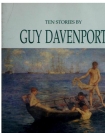The Autobiography of Ma-Ka-Tai-Me-She-Kia-Kiak, or Black Hawk - Black Hawk (howl and other poems TXT) 📗

- Author: Black Hawk
Book online «The Autobiography of Ma-Ka-Tai-Me-She-Kia-Kiak, or Black Hawk - Black Hawk (howl and other poems TXT) 📗». Author Black Hawk
We had now effected our purpose and concluded to go back by land, thinking it unsafe to use our canoes. I found my wife and children, and the greater part of our people, at the mouth of the Iowa river. I now determined to remain with my family and hunt for them, and to humble myself before the Great Spirit, returning thanks to him for preserving me through the war. I made my hunting camp on English river, which is a branch of the Iowa. During the winter a party of Pottawattomies came from the Illinois to pay me a visit, among them was Washeown, an old man who had formerly lived in our village. He informed as that in the fall the Americans had built a fort at Peoria and had prevented them from going down the Sangamon to hunt. He said they were very much distressed. Gomo had returned from the British army, and brought news of their defeat near Malden. He told us that he went to the American chief with a flag, gave up fighting, and told him he desired to make peace for his nation. The American chief gave him a paper to the war chief at Peoria, and I visited that fort with Gomo. It was then agreed that there should be no more hostilities between the Americans and the Pottawattomies. Two of the white chiefs, with eight Pottawattomie braves, and five others, Americans, had gone down to St. Louis to have the treaty of peace confirmed. This, said Washeown, is good news; for we can now go to our hunting grounds, and, for my part, I never had anything to do with this war. The Americans never killed any of our people before the war, nor interfered with our hunting grounds, and I resolved to do nothing against them. I made no reply to these remarks as the speaker was old and talked like a child.
We gave the Pottawattomies a great feast. I presented Washeown with a good horse. My braves gave one to each of his party, and, at parting, said they wished us to make peace, which we did not promise, but told them that we would not send out war parties against the settlements.
A short time after the Pottawattomies had gone, a party of thirty braves belonging to our nation, from the peace camp on the Missouri, paid us a visit. They exhibited five scalps which they had taken on the Missouri, and wished us to join in a dance over them, which we willingly did. They related the manner in which they had taken these scalps. Myself and braves showed them the two we had taken near the Quiver, and told them the cause that induced us to go out





Comments (0)